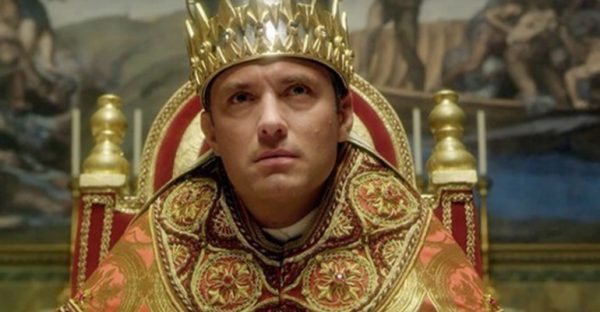 One of HBO’s most confounding new series — more than “The Leftovers,” more than “Westworld” — begins tonight with “The Young Pope” (HBO, 9 p.m.).
One of HBO’s most confounding new series — more than “The Leftovers,” more than “Westworld” — begins tonight with “The Young Pope” (HBO, 9 p.m.).
Already a target on internet memes, the Italian series stars Jude Law as an arrogant new American pope who angers the college of cardinals and acts weird, but not weirdly on a more expected, premium cable, “Borgias” kind of way. He doesn’t appear to be a sex fiend kind of guy.
He’s just kind of smug, power hungry and empty in a way that will remind most, in this epochal week, of a similar figure who ended up in high office on a fluke (or foreign interference).
Director Paolo Sorrentino has created some beautiful tableaux, with expensive Vatican-like sets and sumptuous costumes. But pangs of weirdness keep coming in, such as Diane Keaton, as the new pope’s spiritual mentor.
Already some have been excited about the sheer weirdness of the series, its shapelessness or clunky dialog, reaching a point of “so bad it’s good” status.
But life’s too short to see that happen. And the fact they’re running the 10-episode season on Sundays and Mondays suggests they want to burn it up as soon as possible.
For his part, Law told a session at the TV Critics Association winter press tour Saturday, “It was really eye opening to work with someone who had such clarity of vision and contributed such an extraordinary signature and heightened, just every day, in every way, what we were all doing as a cast and as a team.
“I wasn’t brought up in a particularly religious household,” Law said, “but I’ve always been curious about faith and one’s personal relationship with faith. And I suppose it encouraged me to question and look at that a little more.”
Sorrentino says the series is “mostly about the solitude of the power and the solitude of the man and how the solitude or the loneliness of being a person to have the big question about the existence of God, about what God is for us.”
Is it meant as a commentary on contemporary politics?
Law says he didn’t think so specifically.
“Great writers and great creative minds, I think, have a natural antenna that reads what is in the ether, and I think I’m safe to say that perhaps some of this came from the religious terrain of the past. It also came from perhaps the Italian political terrain of the past. And clearly there was a certain amount of preemptive registering of what was going on internationally.
“ I wouldn’t say that we are necessarily a direct kind of comment on what’s happening, but what’s been extraordinary is it just highlights how relevant sometimes this sort of reactionary voting or indeed, you know, the idea of voting in the unknown can lead you.”